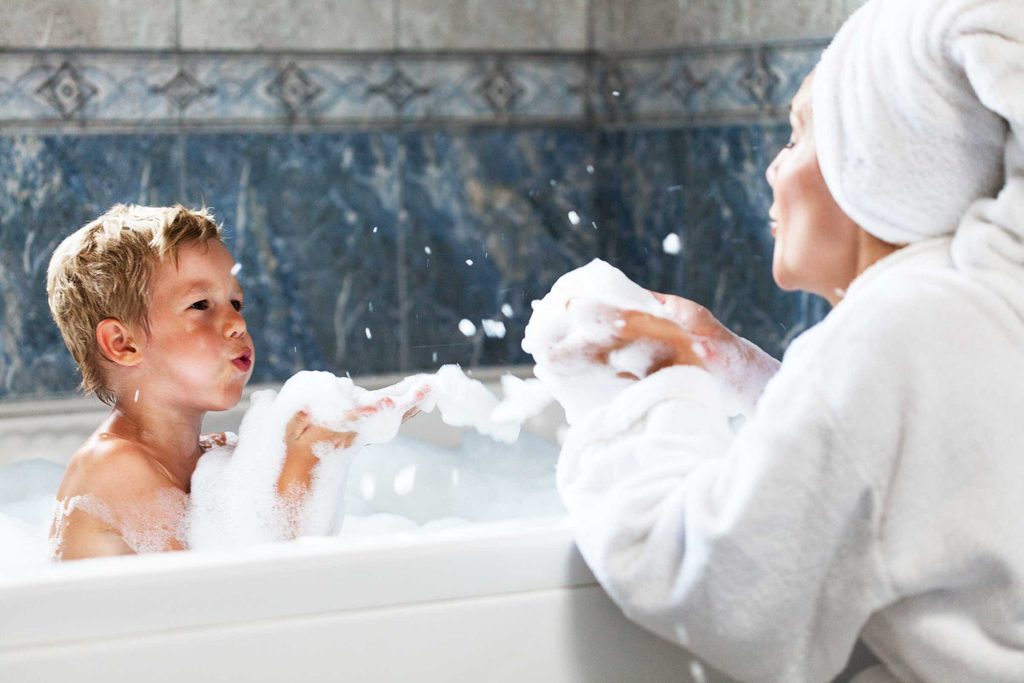So, You’re Probably Bathing Your Kids WAY Too Much
Updated: Oct. 16, 2016
A good scrub-down doesn’t need to happen as often as you think.

Bath time is an essential element of most families’ nightly routines. Ideally, it’s a chance for the kids to relax, wind down from the day, and get ready for a solid night’s sleep.
But whoever said “a little dirt doesn’t hurt” might have been onto something. If wrangling your little one into—or, 10 minutes later, OUT OF—the tub has become a dreaded chore, there’s good news: you might not need to do it every day.
According to the American Academy of Dermatology, children ages six to 11 only need to bathe two or three days out of the week. Toddlers and newborns need even less scrubbing; Parents magazine recommends giving your baby a sponge bath once or twice a week, especially if they aren’t walking. Washing a child’s hair only a few times per week is also A-OK.
The reason for this is less complicated than you think. Depending on their age and activity level, young children and babies don’t sweat, smell, or collect as much bacteria on their skin as adolescents and adults. Plus, letting extra germs stick around is actually healthy, because they can teach children’s bodies to fight off bacteria and build stronger immune systems.
Yet as any parent of young children knows, particular circumstances will arise that require a good cleaning: swimming, playing in the mud, or getting sweaty from running around like a zoo animal are just a few activities that might call for an extra scrub down.
Dermatologists say that bathing should also increase with age (and body odor!). Once kids hit puberty, they should take a shower every day, since this is usually around the time they begin to sweat more and experience odors in areas like their armpits. Plus, adolescents should wash their faces every twelve hours to remove the oil and dirt that has built up throughout the day.
But before turning off the tap, take note: Robert Sidbury, MD, associate pediatric professor and division chief of dermatology at the University of Washington School of Medicine in St. Louis, advises parents to be perceptive of their child’s hygienic needs. Some kids struggle with skin conditions like eczema, which require extra care and attention.
“While these guidelines work well for most children, every child is different,” Sidbury told HealthDay.com. “If your child continues to have body odor, or if your child’s hair or scalp seem too oily or dry after following these guidelines, see a board-certified dermatologist.”